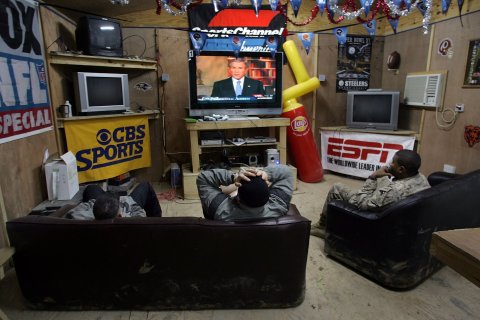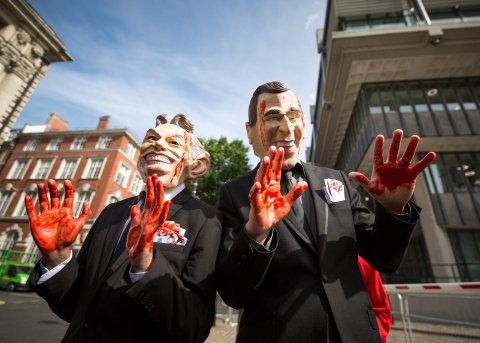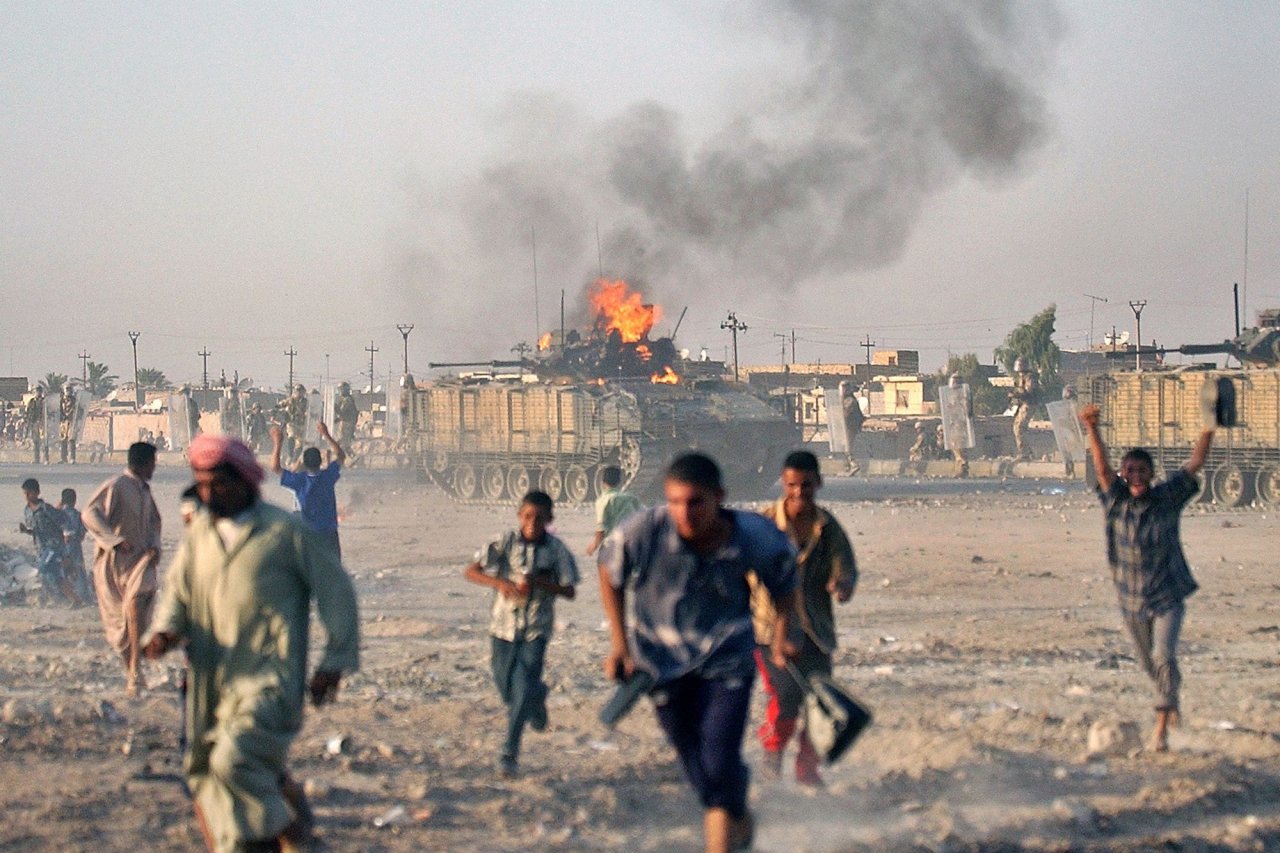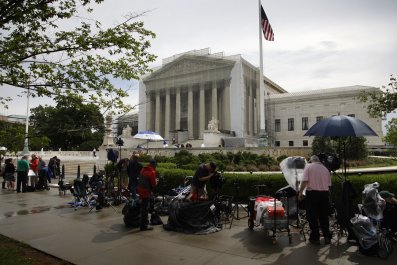There was a time when American politicians cared more about country than party. Government failure prompted real investigations, so leaders could identify the source of the problem and fix it. No more. Instead, "government oversight" has become code for political show trials, where millions of tax dollars are spent to gain a partisan advantage.
So when extremists killed four Americans in 2012 at the U.S. mission in Benghazi, Libya—one of the world's most dangerous places—10 investigations played out over the next four years, some of them pure partisan hackery. None determined anything significant that wasn't found by the first investigation. However, one investigation discovered Hillary Clinton used personal email for official business when she was secretary of state, which spawned an investigation by the State Department's inspector general, which led to an investigation by the FBI, which is now being investigated by a Republican Congress. There have also been long and expensive investigations of oral sex in the Oval Office, of the failed Whitewater real estate deal, of the firing of attorneys general around the country, and on and on.
Each of these issues was worthy of a look-see, but so was the largest strategic blunder in American history: the 2003 invasion of Iraq to destroy weapons of mass destruction (WMD) that didn't exist. More than 4,500 American soldiers have died in the past 13 years as a result. To this day, the world grapples with the consequences of this military folly of former President George W. Bush, which sparked a conflagration that has spread across the Middle East and contributed mightily to the creation of ISIS—the Islamic State extremist group filled with members of former Iraqi dictator Saddam Hussein's military and Baath Party. The Senate investigated the prewar intelligence used to justify that decision, as did an independent commission. But with Republicans in control of Congress until 2006, no congressional committee or official body explored the obvious and politically sensitive question: Were there flaws in the decision-making process at the top of the Bush administration that led to this disaster, and, if so, what lessons can be learned?
Fortunately, there are still nations that take the investigation of government debacles seriously. Last week, the independent British committee established to delve into the blunders that led to that country joining the Iraq misadventure released a report astonishing for its breadth and sobriety. It is no easy read—with 2.6 million words in 12 volumes, it explores every detail of the processes and decisions that cost the lives of 179 British servicemen and women. And since the goal of the inquiry was to determine what went wrong across the board, it provides information no Republican politician would allow anyone on Capitol Hill to dig up. The report's shocking conclusion is obvious: The White House, the Pentagon and, to a lesser extent, the State Department had no idea what they were doing. Incompetence permeates the tale, with Bush officials arrogantly waving aside warnings and pleas for better planning. The march toward war took on an unstoppable political momentum as evidence piled up that this invasion would be a colossal catastrophe. Preconceptions—such as blithe dismissals of a humanitarian and governmental role in the invasion for the United Nations, as well as a disregard for day-after-war preparations in favor of gut feelings and slogans—undermined the chance for success. Records show the British considered themselves indispensable to the effort, if only to counter the Bush administration's reckless planning, which officials in Prime Minister Tony Blair's government derided as fantastical.

First, an aside. The British report demolishes one of the certainties of some opponents of the Iraq War: that Bush lied his way into war. The report shows the president believed Saddam possessed WMD, although he and his administration were irresponsible in their use of the intelligence that led them to that conclusion. However, the report reinforces the suspicion that there was plenty of attention paid to which corporations would get to profit from the Iraq reconstruction, while the humanitarian needs after Saddam's fall were given far less thought.
Based on the findings of the report, the Bush administration at first focused on missile defense as its priority, with Iraq and the Middle East far down the list of issues to address. But members of the British Foreign and Commonwealth Office also heard faint drumbeats—emanating from the Pentagon—about overthrowing Saddam.
By the summer of 2001, as the CIA sent reports to the White House about an impending Al-Qaeda attack on U.S. soil, the administration turned more of its attention to Iraq. (Senior Pentagon officials argued to Bush that the CIA was misreading the intelligence, and that Osama bin Laden was not a threat but instead was running a false flag operation for Hussein.) At the time, Western military planes were patrolling no-fly zones over Iraq as part of the U.N. arms control agreement signed by Iraq in the aftermath of the Persian Gulf War in 1991. Since Saddam's military forces might shoot down the surveillance aircraft at any time, Bush gave the nod to a new plan on how to respond: Rather than merely launching a recovery mission, the American military would instantly mount a major offensive against the Iraqi capital. The British were stunned at the scope of the Baghdad bombing targets listed by the Americans. "We should strongly advise the Americans against their proposed strategy: It is politically and legally all wrong," Stephen Wright, the Foreign and Commonwealth Office deputy under the secretary of state for defense and intelligence, wrote in a memo.
In the days leading up to 9/11, the British discovered that members of the Bush administration were already split over a strategy for Iraq. Defense Department officials told their British counterparts they wanted Saddam overthrown to prevent him from acquiring more WMD; State Department officials told the British Embassy to ignore the Pentagon's goal as "much ado about nothing." The British believed the State Department better reflected administration policy.
By early September, Sir Christopher Meyer, the British ambassador to the United States, believed the Bush administration was adrift, with few plans and little idea of what it wanted to accomplish on a range of issues, including Iraq. But that all changed after 9/11, when Bush decided to dedicate his time in office to fighting terrorism.
In the aftermath of the attack, the Pentagon cited Iraq almost immediately as being potentially linked to Al-Qaeda, a theory advanced by members of the administration—including Vice President Dick Cheney—for years to come. But a little more than two months after 9/11, the Joint Intelligence Committee of the British Cabinet Office—the group that directs all the national intelligence organizations of the United Kingdom—concluded the claim was far-fetched. "Ideologically, [Saddam] is poles apart from the Sunni extremist network linked to [bin Laden]," the intelligence group wrote in November 28, 2001, report.
In his State of the Union speech on January 29, 2002, Bush proclaimed that Iran, North Korea and Iraq made up an "axis of evil" seeking WMD and involved in terrorism worldwide. While the phrase played well in America, U.S. allies and enemies perceived it as a proclamation that war was inevitable, and it frightened some of them into believing Bush was too much of a cowboy to be trusted on war plans. Worse, it shut off potential cooperation against Iraq, particularly secret assistance by the Iranians. "It has been tough sometimes working with the Americans since 11 September," Ambassador Meyer wrote in a February 11, 2002, memo. "It will be tougher still in 2002…. The backdrop is growing US/European mutual disenchantment. This puts the UK in an awkward spot."
Blair feared Bush was not thinking geopolitically but instead focusing on the single goal of overthrowing Saddam. Any effort on that front, he told Bush, had to be part of a broader strategy. Tackling the Arab-Israeli conflict was paramount; if that was ignored, "we could find ourselves bombing Iraq and losing the Gulf,'' David Manning, a British foreign policy adviser, wrote to Blair. Records of an April 2002 meeting between Blair and Bush show that the prime minister stressed again and again that aggressively pursuing the Middle East peace process was fundamental to making any action against Iraq successful. But Bush largely ignored Blair's pleas.
As months passed, the British grew concerned about a transformation in Bush that seemed to make him unable to acknowledge doubts or errors. Bush was "riding high" after declaring himself "Commander in Chief in the war on terrorism," Meyer wrote in a telegram to Blair in April 2002, and Bush insiders were telling him an invasion was inevitable. In another telegram, Meyer wrote that Bush was saying "in effect, that destroying Saddam is a crusade against evil to be undertaken by God's chosen nation…. The target of Bush's messianic appeal was...the anxious and unconvinced in the country at large."
While being urged throughout 2002 by the Bush administration to join the Iraq campaign, the British felt they had minimal influence over an American plan that appeared to be a "harebrained scheme," as one senior British official wrote. Only Secretary of Defense Donald Rumsfeld, Cheney and a few others seemed to know what was going on, and the British officials were questioning their competence behind closed doors. They dismissed the Bush plan to impose a democratic government on Iraq as perilous, given that the country had no experience with such a political system and was in a region where the concept was almost anathema.
Jack Straw, the secretary of state for foreign affairs, was particularly brutal about the American plans in an assessment he sent to Blair in July 2002. The Bush administration, he wrote, was not taking serious action to address problems, and there was "no strategic concept for a military plan."

"US military planning has so far taken place in a vacuum," he wrote, with "weak intelligence analysis and a quite unrealistic assumption that Iraqi WMD would be easy to identify and destroy." He also noted that there was "an assumption that Kuwait would host a large-scale US military effort for the 1-2 years probably necessary, that other Gulf states would provide necessary support, and that Syria and Iran would sit quietly on the sidelines."
Worse, while Blair and others stressed the need for a comprehensive plan for dealing with Iraq after Saddam's fall that would take months to develop, the Americans gave the issue almost no thought. British officials were astonished that the Pentagon was building its day-after strategy on unsupported assertions that Western military forces would be greeted as liberators. That naïve belief reflected a fundamental lack of understanding about the Middle East—enemies of the West and the Sunni supporters of Saddam would not disappear. Without the rapid establishment of security and repair of infrastructure, particularly the electrical grid, the danger of getting pulled into a quagmire or setting off a civil war was enormous. Saddam would be replaced by a swarm of terrorists who would see the Western occupation of Iraq as a battle against Islam. British intelligence issued a stark warning: A poorly handled invasion, without proper, realistic preparation for the aftermath, would prompt a flood of Muslims joining extremist groups, followed by years of attacks.
Weeks before the 2003 invasion, British officials attended what was called a Pentagon "Red Rock Drill,'' intended to show how America would manage a postwar Iraq. It was a disaster. "The inter-agency rehearsal...exposes the enormous scale of the task,'' reported a memo from the British Embassy in Washington, D.C., which included an "acknowledgment that this is beyond US capabilities." "Private realisation by some that it will require a UN umbrella, but planning does not take account of this…. Overall, planning is at a very rudimentary stage, with the humanitarian sector more advanced than reconstruction and civil administration." A record of a February meeting of top British officials who discussed the drill said it "revealed a large gap between the US's ambitious plans and their ability to deliver. Our message, that they need the Coalition and, therefore, UN authorisation, appeared to hit home."
Despite the obvious need for U.N. participation in administering a new Iraqi government, the Americans batted away the suggestions of the British. Despite their poor planning, U.S. officials insisted they would handle post-Saddam Iraq themselves.
The chaos of the American planning left Blair with two choices, which he detailed to his aides. He could either gamble on the U.S. effort or keep Britain out of the conflict and damage relations with America. He decided to take the risk, and he lost. His intelligence team was right. The Iraqi invasion set off a new wave of terrorism that has no end in sight. And the Americans—because of arrogance, poor planning and incompetence—were to blame.



















